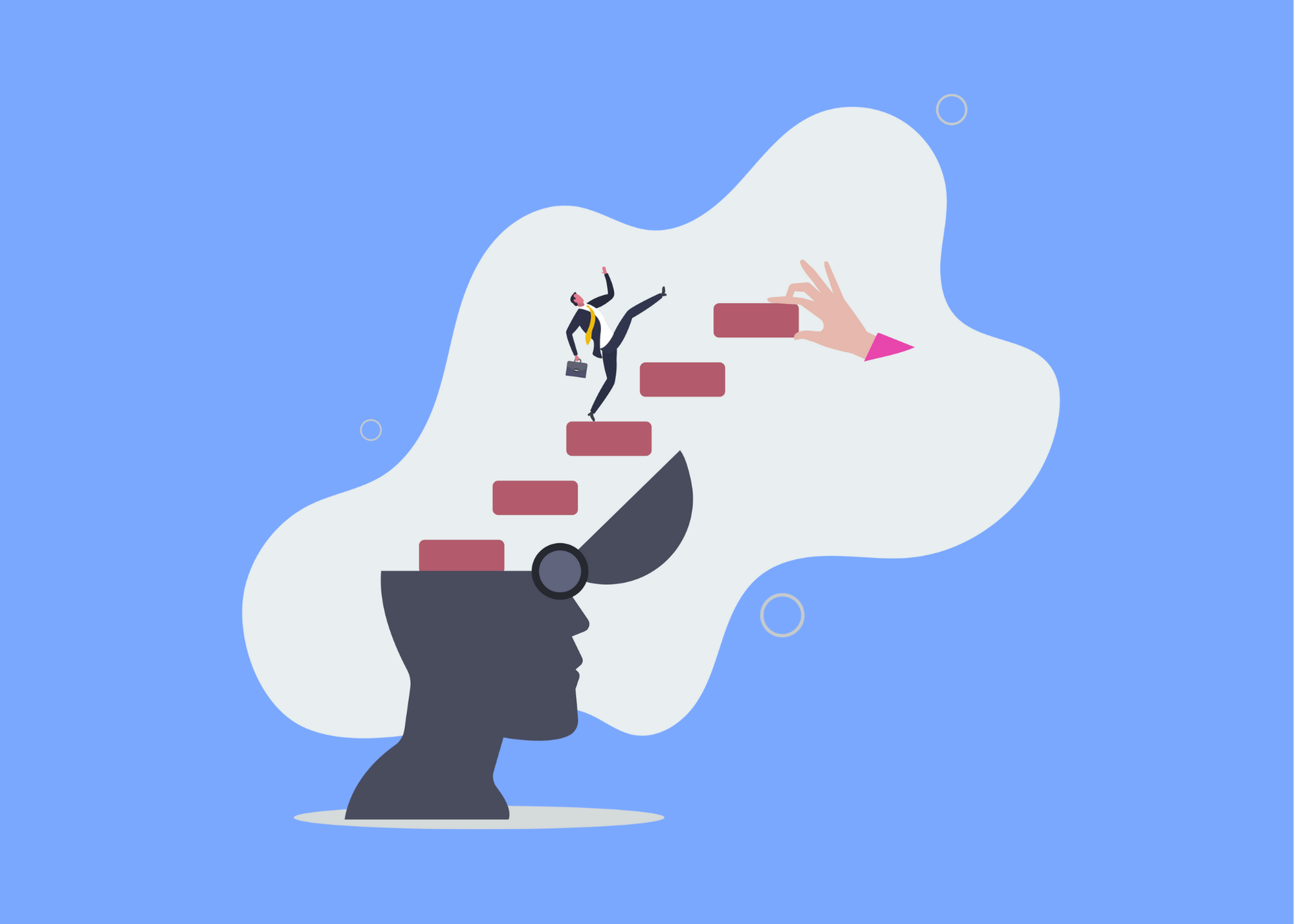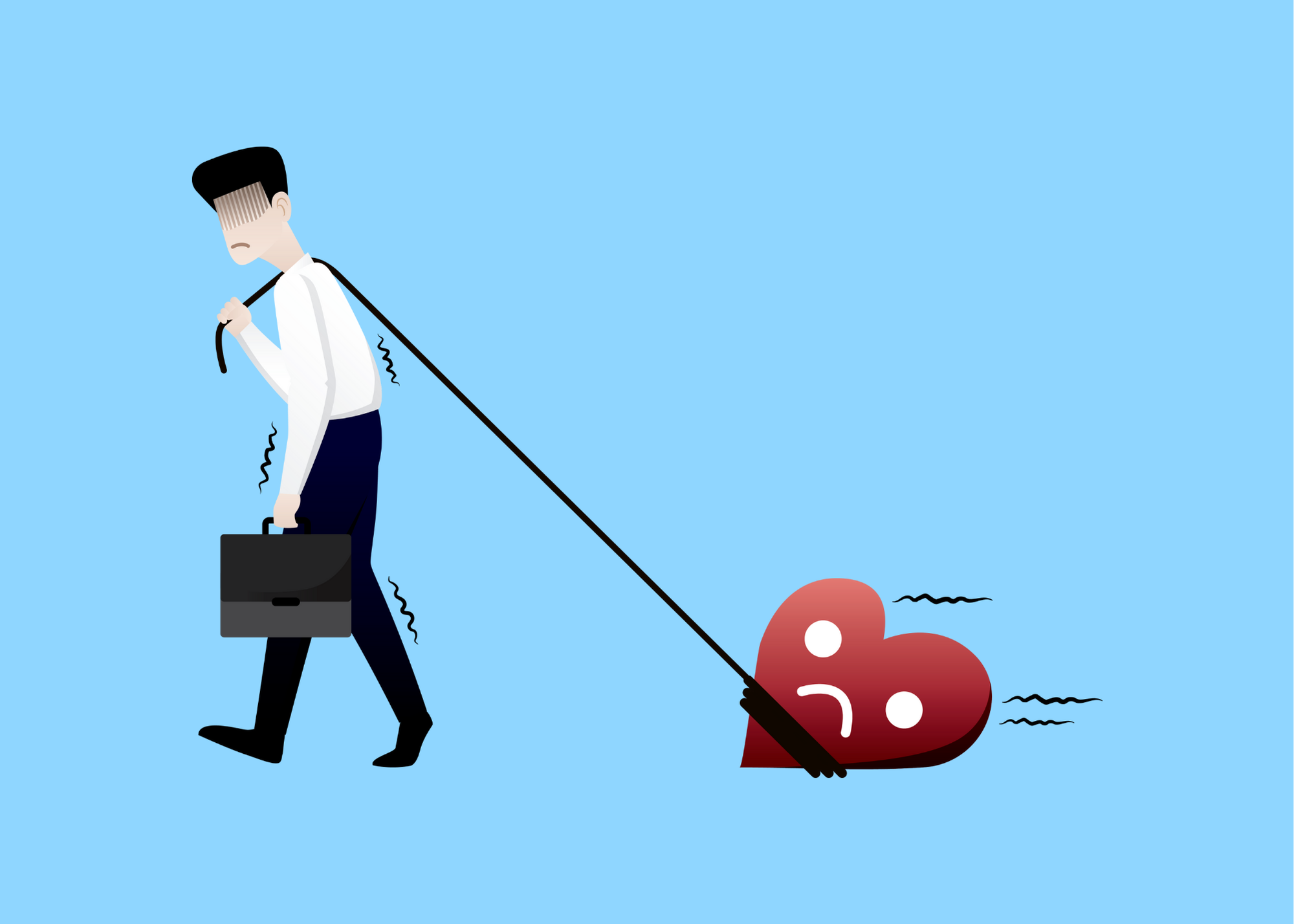Emotional Health: What Healthy vs Unhealthy Looks Like
Emotionally healthy people aren’t less stressed—they’re better equipped to handle it.
Let’s cut to the chase: If you’re reading this, there’s a good chance your emotional health is quietly running on fumes. Not because you’re broken or unmotivated, but because high-functioning burnout is real—and it’s thriving in corner offices, Slack channels, and late-night email chains.
As a high achiever, you’ve likely optimized your calendar, your macros, and maybe even your Whoop scores. But have you optimized your emotional bandwidth? Because here’s the inconvenient truth: you can’t out-plan, out-hustle, or out-supplement emotional depletion. And when emotional health goes unchecked, everything else eventually breaks down with it.
This article offers a no-fluff deep dive into emotional health: what it is, how to assess it, what "healthy" vs. "unhealthy" really looks like, and most importantly, how to strengthen it. You’ll walk away with a realistic, science-backed roadmap for emotional resilience—designed for people who don’t have time for fluff but need space to breathe.
What Is Emotional Health, Really?
Emotional health isn’t about being happy all the time. That’s toxic positivity.
True emotional health is your capacity to:
Recognize and name your emotions
Regulate your responses (without exploding, imploding, or numbing out)
Express how you feel in constructive ways
Maintain meaningful relationships
Bounce back when life smacks you sideways
In the NBHWC model of Deep Health, emotional health is one of six core domains (alongside physical, mental, social, existential, and environmental). These are deeply interconnected. When emotional health tanks, mental focus gets fuzzy, digestion turns to trash, and even your most well-intentioned habits slide off the rails.
The Professional Litmus Test: How's Your Emotional Health?
You don’t need a diagnostic tool—you need honest answers. Try these reflection prompts:
Self-Awareness: Can you name what you're feeling—beyond just "stressed" or "fine"?
Regulation: When you’re triggered, can you respond instead of react?
Recovery: How long does it take you to rebound from setbacks?
Relational Impact: Are your emotions improving or damaging your connections?
Baseline Mood: Do you feel grounded, or is your default setting closer to edgy, flatlined, or quietly despairing?
If your gut response to most of these is, “Yikes,” or, “I don’t even know,” consider this your wake-up call.
Emotionally Healthy vs. Emotionally Unhealthy
What Emotionally Healthy Looks Like
Emotionally healthy people aren’t perfect. They’re just practiced. Here’s what sets them apart:
Emotional Literacy: They know if they’re anxious vs. avoidant, lonely vs. drained.
Regulation Skills: They have go-to tools—like breathwork, movement, journaling, or therapy—instead of defaulting to rage-scrolling or wine o’clock.
Resilience: They bounce back, even if they crack a little.
Boundaries: They say no, ask for what they need, and protect their bandwidth like a seasoned exec protects a calendar.
Connection: Their relationships feel more like a charging station than a leak.
What Emotionally Unhealthy Looks Like (And It Might Be You)
Emotionally unhealthy doesn’t always mean visibly unwell. It often looks high-functioning on the outside. But here’s what’s going on under the hood:
Emotional Blunting: You’re not happy or sad. You’re just... disconnected.
Reactive Patterns: Every curveball feels like a crisis. You snap, stonewall, or spiral.
Chronic Overwhelm: Small things feel big. Big things feel crushing.
Leaky Boundaries: You’re always available, always performing, always exhausted.
Relationship Strain: You’re withdrawing, over-pleasing, or constantly in conflict.
If this sounds uncomfortably familiar, you’re not alone. Especially if you’re burning the candle at both ends trying to prove your worth.
How It Affects the People Around You
Let’s be blunt: emotional dysregulation is contagious.
In high-pressure teams, it creates toxic ripple effects—tense meetings, passive-aggressive feedback, unclear communication, and fraying morale. At home, it can lead to resentment, disconnection, and the slow erosion of intimacy.
On the flip side, emotionally healthy leaders create psychological safety, model healthy boundaries, and build cultures that prevent burnout rather than glorify it. Emotional health isn’t soft. It’s strategic.
Risk Factors for Emotional Erosion in High-Achievers
If you’re a go-getter, perfectionist, or people-pleaser (or all three), your emotional health is at higher risk. Here’s why:
Chronic Stress: Your nervous system is running a marathon without water breaks.
Work Overload: High control, high responsibility, low recovery. Recipe for burnout.
Isolation: You're too busy to maintain meaningful friendships, and networking feels transactional.
Performance Pressure: Your self-worth is tied to output. So when you’re "off," so is your identity.
Disconnection from Self: You’ve lost sight of what you enjoy outside of work, productivity, or achievement.
A Practical, No-B.S. Plan for Building Emotional Resilience
You don’t need to overhaul your life. You need simple, consistent shifts. Here’s where to start:
1. Name It to Tame It
Start building emotional vocabulary. Instead of “I’m stressed,” get granular: Is it anxiety? Resentment? Guilt? Emotional clarity reduces reactivity.
Try this:
Use an emotions wheel to identify how you feel
Track emotional patterns with a quick end-of-day note: “What did I feel most today?”
2. Make Space to Process
Busyness is the ultimate avoidance strategy.
Try this:
Schedule 10-minute emotional hygiene check-ins (walk, voice note, journal, or just breathe)
Practice stillness once a day—no inputs, just a pause
3. Move the Energy
Emotions are physiological. Stuck emotions need motion.
Try this:
Walk after tense calls
Dance (yes, seriously)
Shake it out for 30 seconds like you just got off a bad Zoom
4. Train Recovery Like You Train Productivity
You calendar meetings. Why not mental resets?
Try this:
Block one daily window for active recovery (breathwork, stretching, a nap, a call with someone who "gets" you)
Make at least one decision a day based on what you need vs. what you should do
5. Audit Your Boundaries
High-functioning burnout thrives on people-pleasing and overcommitment.
Try this:
List your top 3 bandwidth drains. What can you delegate, defer, or drop?
Say “no” with clarity: "That doesn't work for me right now."
When to Call in a Pro
If you’re:
Feeling persistently hopeless, anxious, or numb
Using substances, screens, or work to escape emotions
Struggling to function in daily life or relationships
...it's time to speak to a licensed therapist, counselor, or coach who specializes in emotional health or burnout recovery. That’s not weakness. That’s leadership.
Final Thoughts: Emotional Health Is a Leadership Skill
Emotionally healthy people aren’t less stressed—they’re better equipped to handle it. They know how to name what they feel, respond rather than react, and recharge before they flatline.
If you're committed to high performance, emotional health isn't optional. It's foundational. And like any skill, it can be trained.
No one gets a promotion for emotional clarity or resilience on paper. But in the real world? It’s the secret sauce behind every effective leader, high-functioning team, and deeply fulfilling life.
Don’t wait for burnout to force you into emotional rehab. Build the habits now. Your future self—and everyone who works or lives with you—will thank you.
Need Help? The people in your life impact your energy, mood, and stress response.
By setting boundaries, practicing mindfulness, and seeking support you’ll think clearer and show up better.
💡 Let’s make that part of the plan. Book your free 20-minute consult today.
Article References
The sources cited in the article:
National Institutes of Health (NIH). “What Is Wellbeing?” NIH - What Is Wellbeing?
Centers for Disease Control and Prevention (CDC). "Supporting Mental Health in the Workplace." CDC - Mental Health at Work
World Health Organization (WHO). "Mental Health at Work." WHO - Mental Health at Work
National lnstitutes of Health (NIH). "Emotional Wellness Toolkit" NIH - Emotional Wellness Toolkit
American Psychological Association (APA). "The Road to resilience." APA - The Road to Resilience
SAMHSA. “Warning Signs and Risk Factors of Emotional Distress.” SAMHSA - Warning Signs and Risk Factors of Emotional Distress






